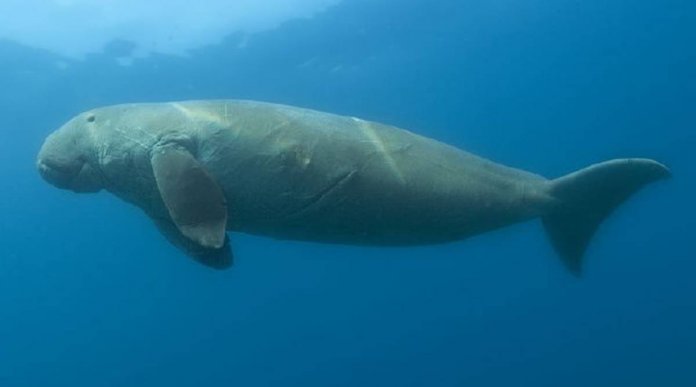Hello Aspirants!
In today’s blog we will talk about India’ first dugong conservation reserve which is to be built in Tamil Nadu. We will discuss in detail about what are dugongs, the conservation reserve, areas where they are found, the reason for their extinction and several other related facts. Read our blog to know all about dugongs.
What are dugongs?
Dugong (Dugong dugon) also called ‘Sea Cow’ is one of the four surviving species in the Order Sirenia and it is the only existing species of herbivorous mammal that lives exclusively in the sea including in India. They can grow three metres in length, weigh 300 kilogrammes, and live for 65 to 70 years while feeding on seagrass and rising to the surface to breathe.
They are listed as Vulnerable on the IUCN Red List and are protected in India under Schedule I of the Wild (Life) Protection Act, 1972.
Dugongs are found in more than 30 nations, and in India are seen in the Gulf of Mannar, Gulf of Kutch, Palk Bay, and the Andaman and Nicobar Islands in India. According to a 2013 survey report of the Zoological Survey of India (ZSI), there were only about 200 dugongs in the Gulf of Mannar in Tamil Nadu, the Andaman and Nicobar Islands and the Gulf of Kutch in Gujarat.
Importance of Dugongs
Dugongs are a vital part of marine ecology, and their extinction will have consequences way up the food chain. It consumes 40kg of seagrass daily and helps in the growth of fresh vegetation. In the absence of dugongs, seagrass will grow densely and fish will not come to lay eggs. The only way to prevent dugongs from extinction is through proper conservation. World Dugong Day is celebrated on 28th May, every year.
Causes of extinction
Dugongs are long-living animals that have a low reproductive rate, a long generation time, and a substantial investment in each offspring. Female dugongs do not give birth to their first calf until they are at least ten and up to seventeen years old. The population of dugongs is unlikely to grow faster than 5% per year. Due to their slow breeding rate, they take a long time to recover.
Dugongs graze on seagrass, and the loss of seagrass beds due to ocean floor trawling is one of the leading causes of dugong population decline in many regions of the world.
Trawling is a type of fishing in which one or more boats pull a fishing net across the water. It is environmentally hazardous because it harms the seafloor, coral reefs, and other marine animals.
The greatest risks to dugongs include habitat destruction and modification, pollution, pervasive illegal fishing operations, vessel strikes, unsustainable hunting or poaching, and unplanned tourism.
India’s first dugong conservation reserve in Tamil Nadu
The Gulf of Mannar and Palk Bay in Tamil Nadu are home to dugongs. The Gulf of Mannar is a shallow bay located between Tamil Nadu’s south-eastern tip and western Sri Lanka. The dugong is a flagship species in this region.
The reserve will include 500 square kilometres in Palk Bay, on Tamil Nadu’s southeast coast. Palk Bay is a shallow semi-enclosed sea body having a maximum depth of 13 metres.
The Tamil Nadu government’s decision to construct conservation reserves will help an estimated 200 individuals residing in the Palk Bay and Gulf of Mannar areas.
The proposed conservation reserve supports several globally important species such as the highly-threatened whale shark, sea horses, green and hawksbill sea turtles, dolphins and sacred chants (Conch).
Banning gill nets and trawling would be significant in conserving the species. Government is running awareness programmes for fishing communities. Small appreciation awards were given to fishermen who released dugongs that were accidentally caught. Work is being done with the Wildlife Institute of India and village committees in preparing the detailed proposal for the new reserve.
Stay tuned on hranker.com for more updates.




